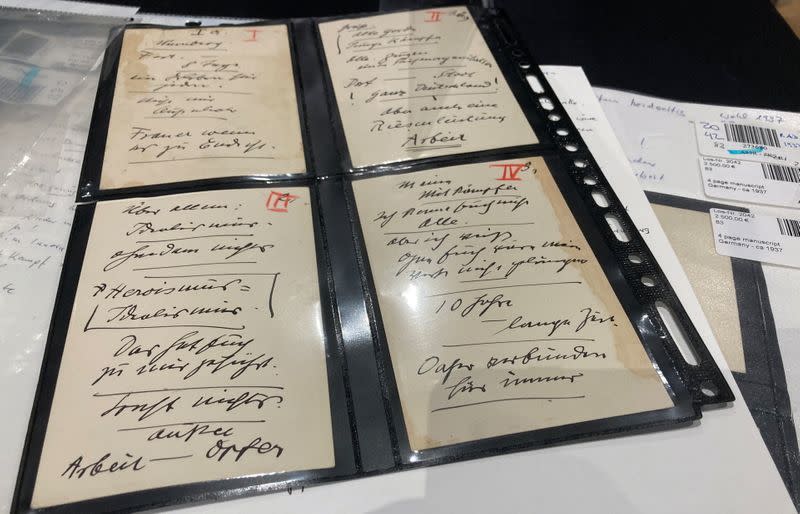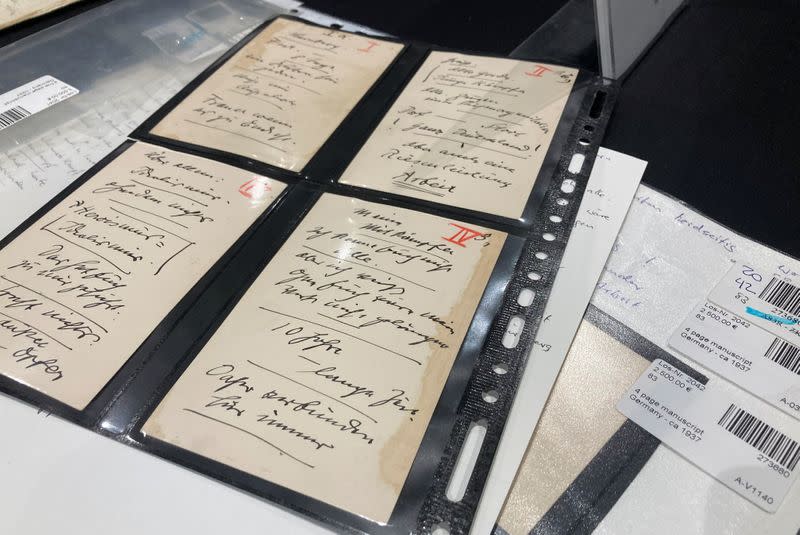Hitler under the hammer: speech cards auctioned in Munich
MUNICH (Reuters) - A sheaf of papers, scrawled with notes in a vigorous hand, here and there a recognisable phrase: "the Jewish problem", "work, sacrifice" - these are Adolf Hitler's speaking notes, which went under the hammer at a Munich auction house on Friday.
The collection of post-1919 historical artefacts at Munich's Hermann Historica auctioneers has attracted attention because of the presence of large amounts of memorabilia linked to the Nazi leader, responsible for some of the worst crimes in history.
Apart from the notes to several speeches by the man who unleashed World War Two and the genocide of 6 million European Jews, the connection contains initialled pots from his personal tea service and presentation copies of his books.
But Bernhard Pacher, manager of the auctioneers, denied that the objects would end up in the hands of neo-Nazis or sympathisers, saying that only well-heeled museums and "private collectors" could afford them.
"Almost none of the buyers are right-wing extremist neo-Nazis because they don't need that stuff. They are happy with copies, cheap copies," he said. "No one would spend that kind of money to create a private altar with Hitler memorabilia."
But sale prices clearly showed more interest in relics closely associated with the wartime leader's crimes.
The set of cue cards bearing the phrase "Jewish problem", for a 1939 speech to graduating army officers, sold for 34,000 euros, while the notes for a 1935 speech to a winter aid charity with phrases like "collections are annoying" went for just 12,500 euros.
Other objects in the sale include an example of the German Enigma cipher machine which was famously cracked by Polish and British cryptographers early in World War Two, expected to fetch up to 70,000 euros, and uniforms, military decorations and pins.
"Since the Wehrmacht had more than 6 million soldiers there isn't really a supply problem," said Pacher.
(Reporting by Reuters TV, writing by Thomas Escritt, editing by Giles Elgood)



